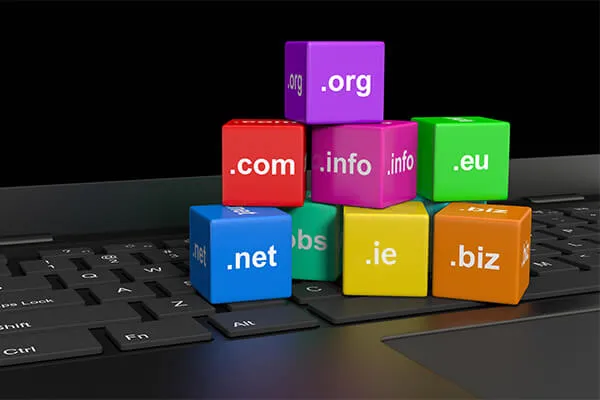
Each country worldwide has its own domain name initials. The technical term is a country code top-level domain (ccTLD). It is essentially, the two or three identifying letters at the end of the web address. These are administered by that country specified and allow the user to know where each company is likely to be based. Ireland has the .ie. extension. Japan has a .jp and China uses.cn.
Alongside these domains extensions there are generic domain extensions which are universal. These include .com, .net, .org and everything from. farm to .blog. But it is the geographically specific domain names that are in high demand. Most likely because they immediately identify the location of the company or person, but also because most popular names are already snapped up on the .com and .net options. It is difficult to purchase a .ie domain name without having very definite proven operation on the island of Ireland.
More than 80,000 websites in the UK were deemed ‘suspended’ in status, following the end of the Brexit transition period last year. On the 1st of January 2021, those that had not proved their eligibility to their domain name, were officially revoked indefinitely. The common denominator was the .eu domain name. You need to prove European citizenship to continue using a .eu domain name in the UK. Ironically, one of the domain names lost to citizens of Great Britain was the pro-Brexit site Leave.eu. There ensued some attempts by Leave.eu, a domain name registered to the organization of the same name, which had been spearheaded by former Brexiteer MEP Nigel Farage and bankrolled by erstwhile UKIP funder Arron Banks, to move to an address in Waterford and keep the .eu domain name. The European Registry for Internet Domains EURid investigated.
“However, following an investigation by EURid, the domain was issued with a "withdrawn" status, because the domain holder failed to respond to data verification requests, EURid said on Monday. As of Monday, the Leave.eu domain name will become available for re-registration by an EU citizen or resident.”
Politico
If you would like to have a .ie domain name (and who wouldn’t), you are required to prove your entitlement. In the case of a company, this means providing details of the Certificate of Corporation and company number. Vat details and authenticated I.D. (passport, driver’s license etc.) can be enough to complete the purchase, in the case of individuals and non-incorporated companies. When searching the web, a .ie domain is the guarantee that the company or individual has strong and proven links to Ireland and a localised dimension is always useful.
There are ways around purchasing the domain name from a particular country even if you are not registered with a contact address, company incorporated and direct links with that country. Trustee services offer registration through local representatives in that specific nation. Of course, there is a fee to be paid for this service and it is generally over and above the usual price. There is also the downside of not being able to access the DNS records directly, should you need to change them, and you rely on the trustee company to do so.
Domain names and the extensions do impact on SEO. A domain name that starts with one of the main industry or brand keyword will always be a boost for SEO, but it is just as important to have a good website, with up to date and lively content. Having the right domain name and extension can accelerate search engine placement. Consider the impact of location-based domain names to boost traffic, e.g., galwayplumber, donegalcakemaker etc. This can only be improved with a location-based extension too.
If you would like to register a new domain name, contact us at Dmac Media Ltd and we will be pleased to assist.